Comments
- No comments found

In my experience, discussions of the UK economy almost immediately jump to the “Brexit” question, or whether it was wise for the United Kingdom to leave the European Union. But the Brexit vote was in 2016, and problems with the UK economy are apparent in the data well before the bill passed.
Ending Stagnation A New Economic Strategy for Britain (December 2023, Resolution Foundation & Centre for Economic Performance) is one of those reports that draws on multiple study groups and background papers, in an attempt to build some consensus on an underlying narrative.
We [that is, the United Kingdom] were catching up with more-productive countries like France, Germany and the US during the 1990s and early 2000s. But that came to an end in the mid-2000s and our relative performance has been declining ever since, reflecting a productivity slowdown far surpassing those seen in similar economies. Labour productivity grew by just 0.4 per cent a year in the UK in the 12 years following the financial crisis, half the rate of the 25 richest OECD countries (0.9 per cent). The UK’s productivity gap with France, Germany and the US has doubled since 2008 to 18 per cent, costing us £3,400 in lost output per person. …
Weak productivity growth has fed directly into flatlining wages and sluggish income growth: real wages grew by an average of 33 per cent a decade from 1970 to 2007, but this fell to below zero in the 2010s. In mid-2023 wages were back where they were during the financial crisis. 15 years of lost wage growth has cost the average worker £10,700 a year. …
While Britons have been living with stagnant wages for the last 15 years, high inequality has been a problem for more than twice as long. Having surged during the 1980s, and remained consistently high ever since, income inequality in the UK is higher than any other large European country. … This toxic combination is a disaster for low-to-middle income Britain and younger generations. We might like to think of ourselves as a country on a par with the likes of France and Germany, but we need to recognise that, except for those at the top, this is simply no longer true when it comes to living standards.
Indeed, one can make a plausible case that the UK combination of stagnant growth and high inequality fed the political pressures for the Brexit vote. Here, I won’t work through the details of the nearly 300-page report, but instead offer some of the figures that caught my eye.
UK productivity fell behind France and Germany in the 1980s, but while those countries are now close to US levels (albeit based on fewer hours worked per person), the UK economy has not been closing the gap with the US.
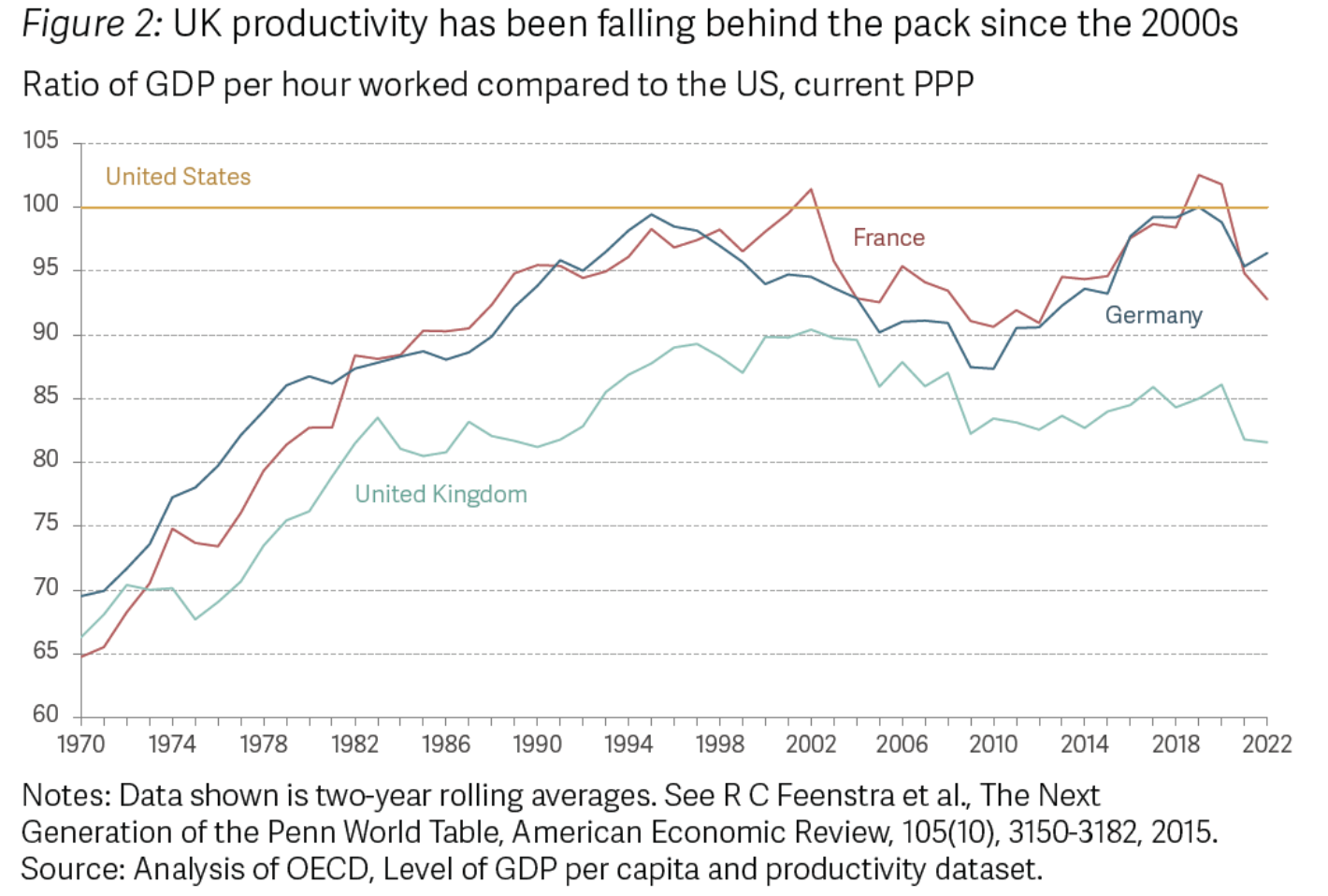
Average weekly earnings in the UK are below the peak they reached in 2008.
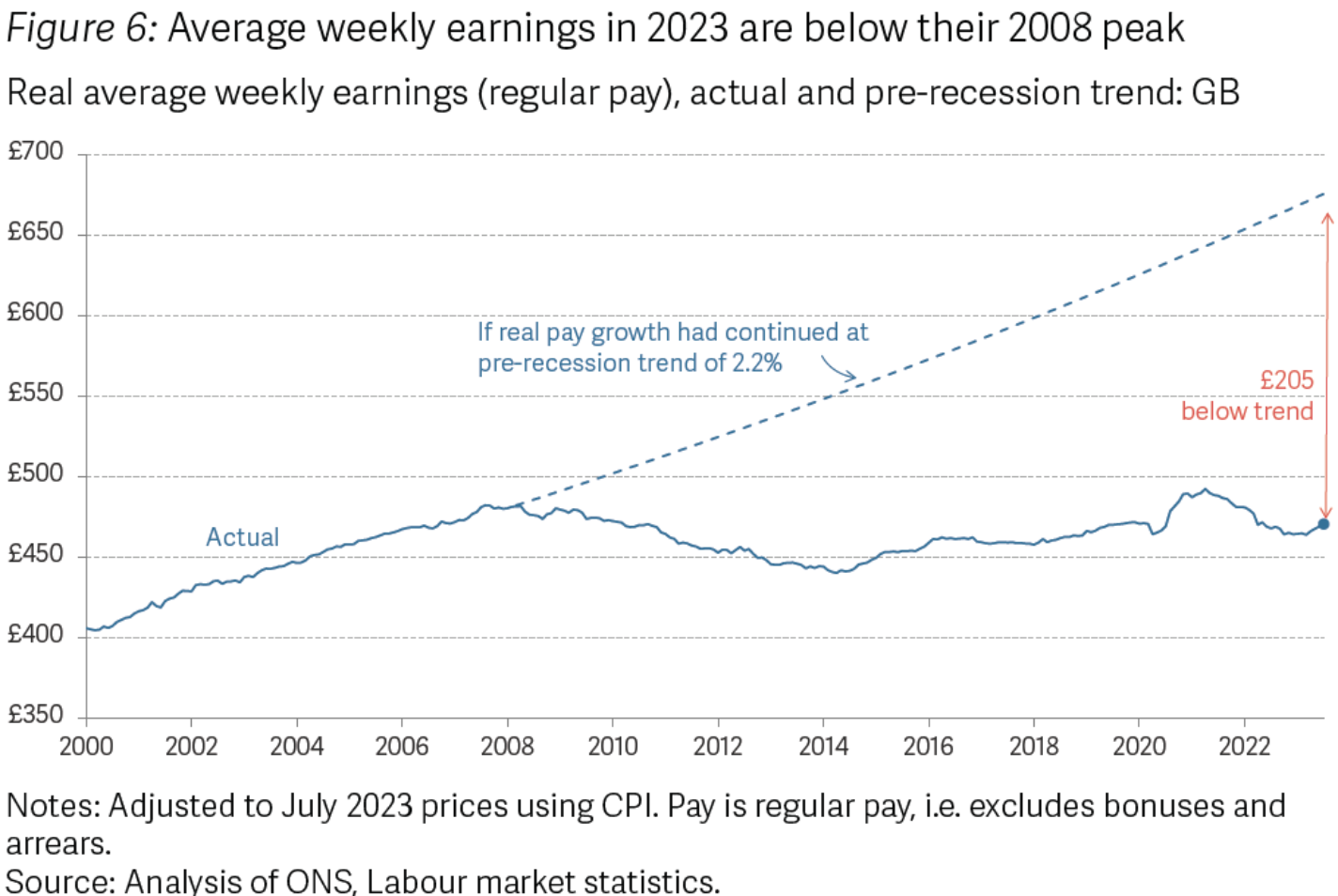
The gap in average incomes between London and the other nations/regions of the UK has been rising.
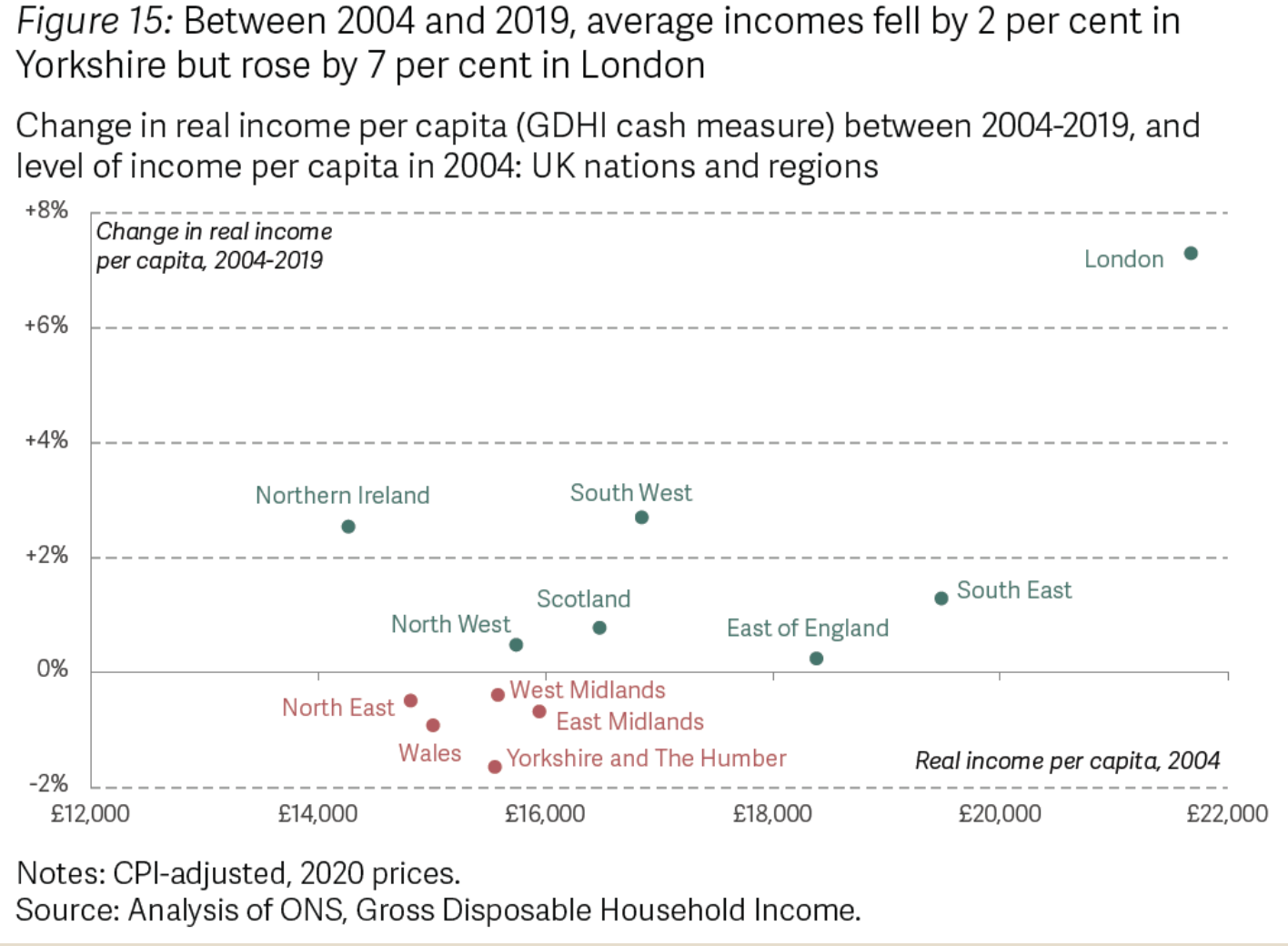
Slower growth means fewer resources for many purposes. For example, waiting lists for the National Health Service have more than doubled since 2014–a change that started well before the pandemic.
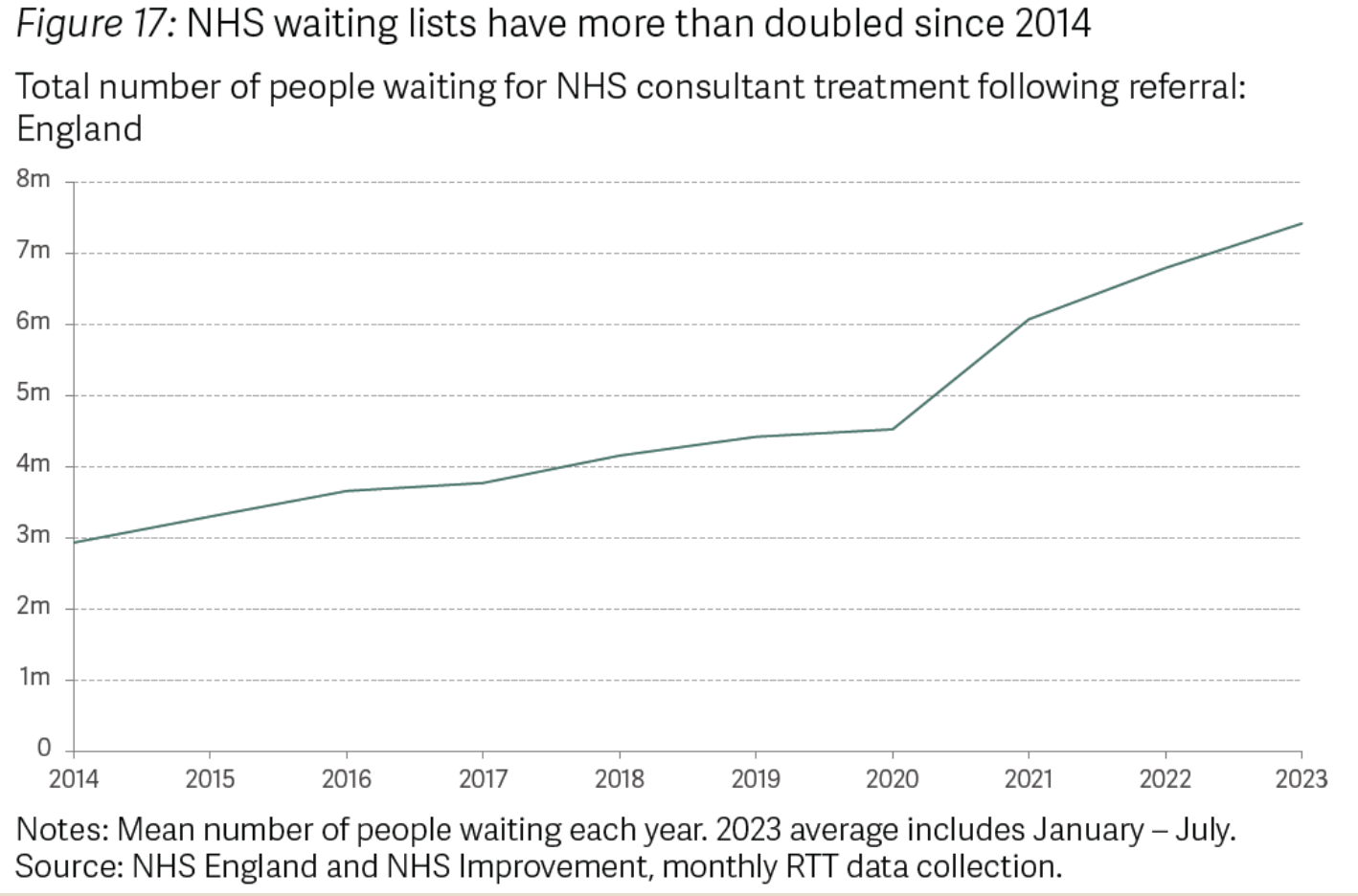
Rates of fixed investment in the UK are at the bottom end of the range for advanced economies.
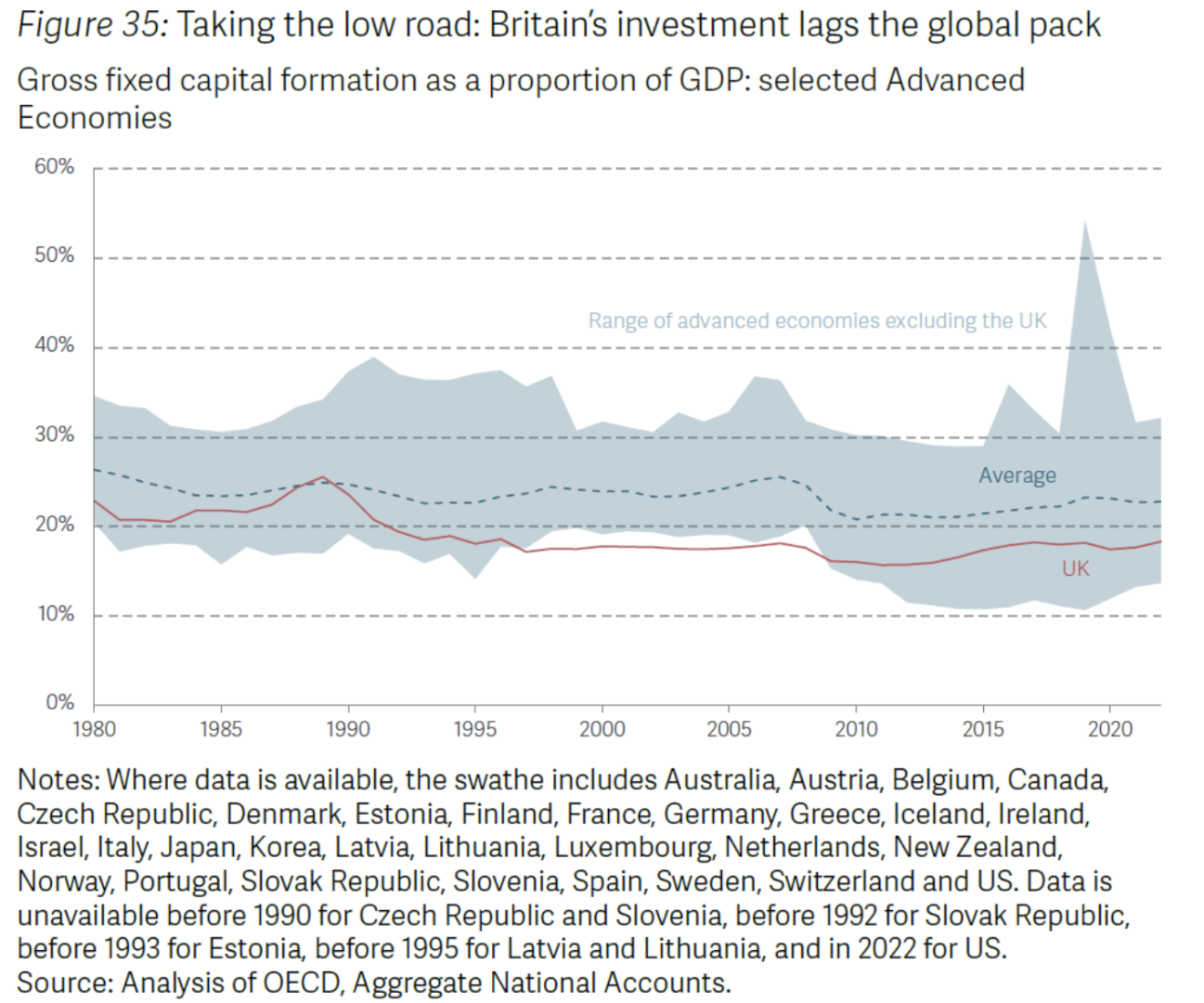
Other advanced countries are gradually expanding the area of their “built-up land,” but not the UK.
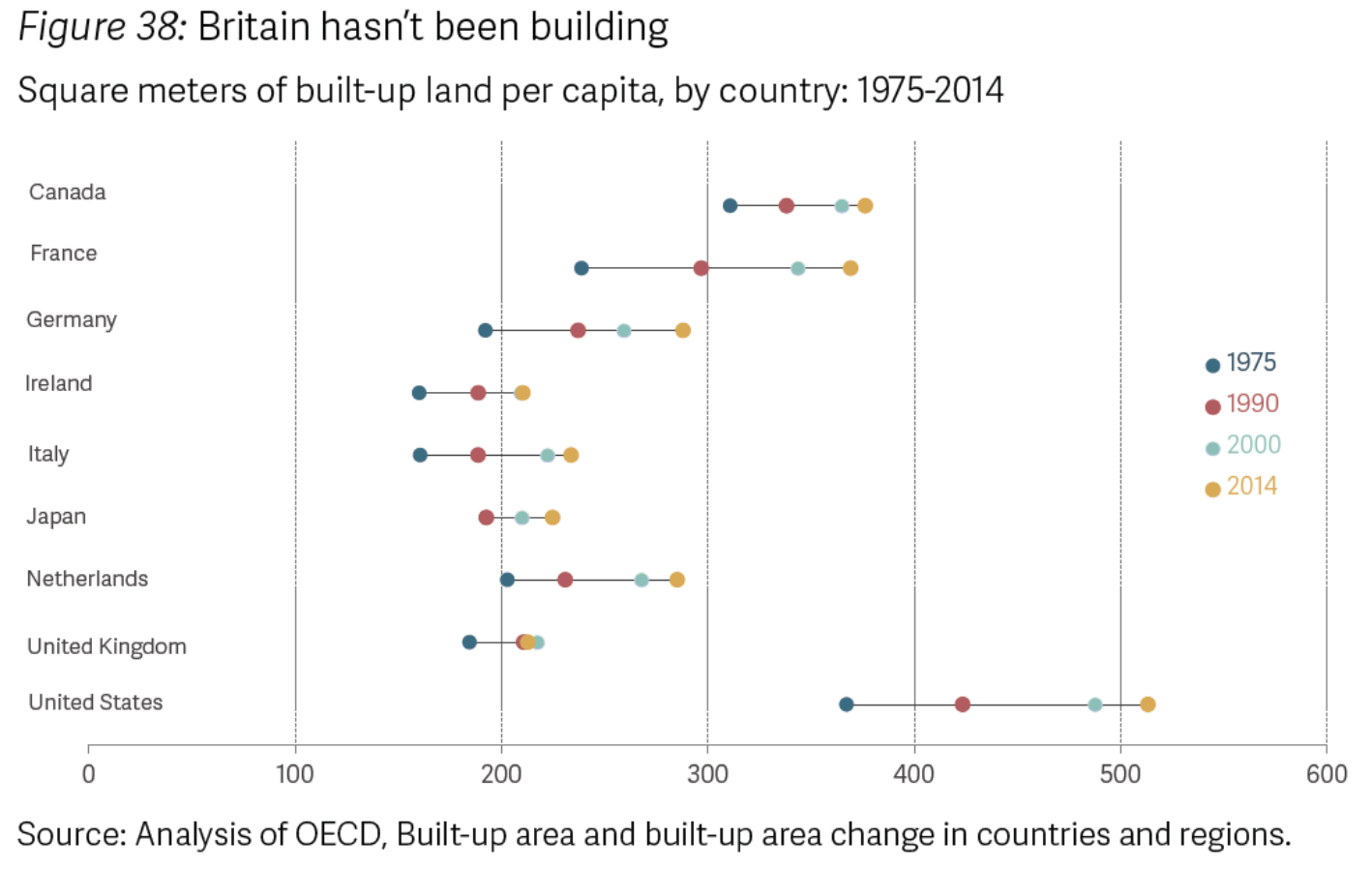
The grim news in the report goes on and on: shortcomings of public infrastructure, energy costs, pensions, housing prices, support for the working poor, and so on and on. The report discusses in some detail how Brexit isn’t helping the UK economy, either, but the country’s economic issues clearly run a lot deeper. One source of comfort for the UK: Sure, we’re not keeping up with Germany and France, but Italy is worse-off!
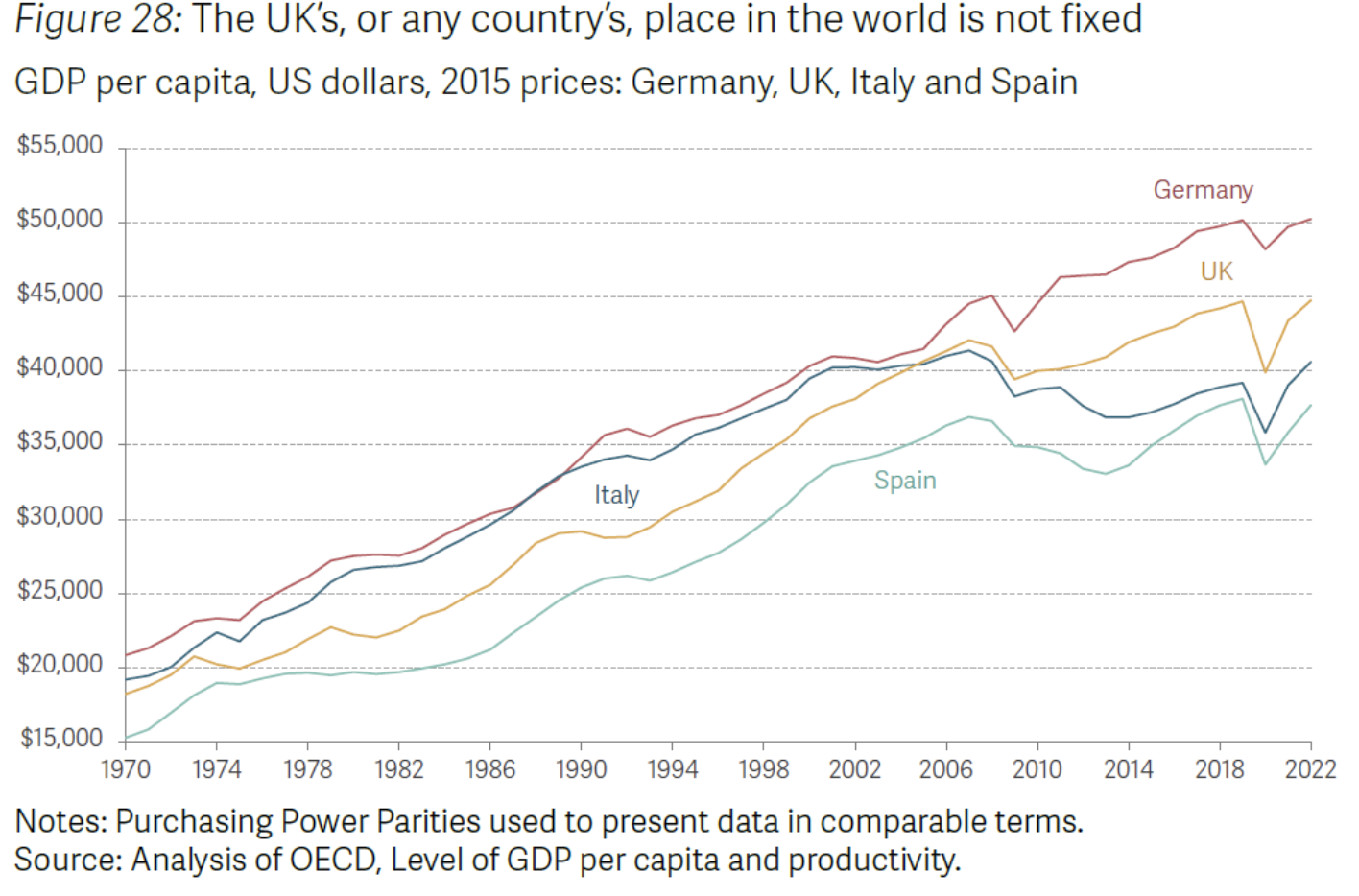
Timothy Taylor is an American economist. He is managing editor of the Journal of Economic Perspectives, a quarterly academic journal produced at Macalester College and published by the American Economic Association. Taylor received his Bachelor of Arts degree from Haverford College and a master's degree in economics from Stanford University. At Stanford, he was winner of the award for excellent teaching in a large class (more than 30 students) given by the Associated Students of Stanford University. At Minnesota, he was named a Distinguished Lecturer by the Department of Economics and voted Teacher of the Year by the master's degree students at the Hubert H. Humphrey Institute of Public Affairs. Taylor has been a guest speaker for groups of teachers of high school economics, visiting diplomats from eastern Europe, talk-radio shows, and community groups. From 1989 to 1997, Professor Taylor wrote an economics opinion column for the San Jose Mercury-News. He has published multiple lectures on economics through The Teaching Company. With Rudolph Penner and Isabel Sawhill, he is co-author of Updating America's Social Contract (2000), whose first chapter provided an early radical centrist perspective, "An Agenda for the Radical Middle". Taylor is also the author of The Instant Economist: Everything You Need to Know About How the Economy Works, published by the Penguin Group in 2012. The fourth edition of Taylor's Principles of Economics textbook was published by Textbook Media in 2017.
Leave your comments
Post comment as a guest